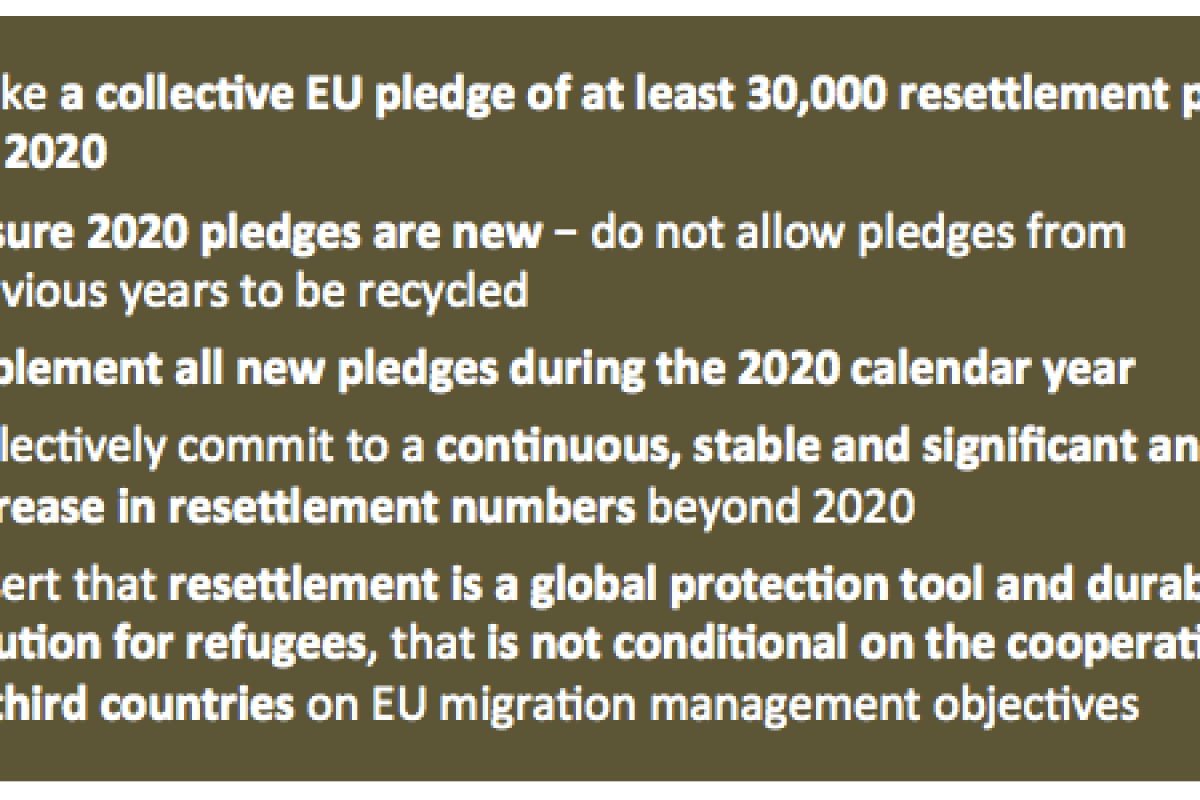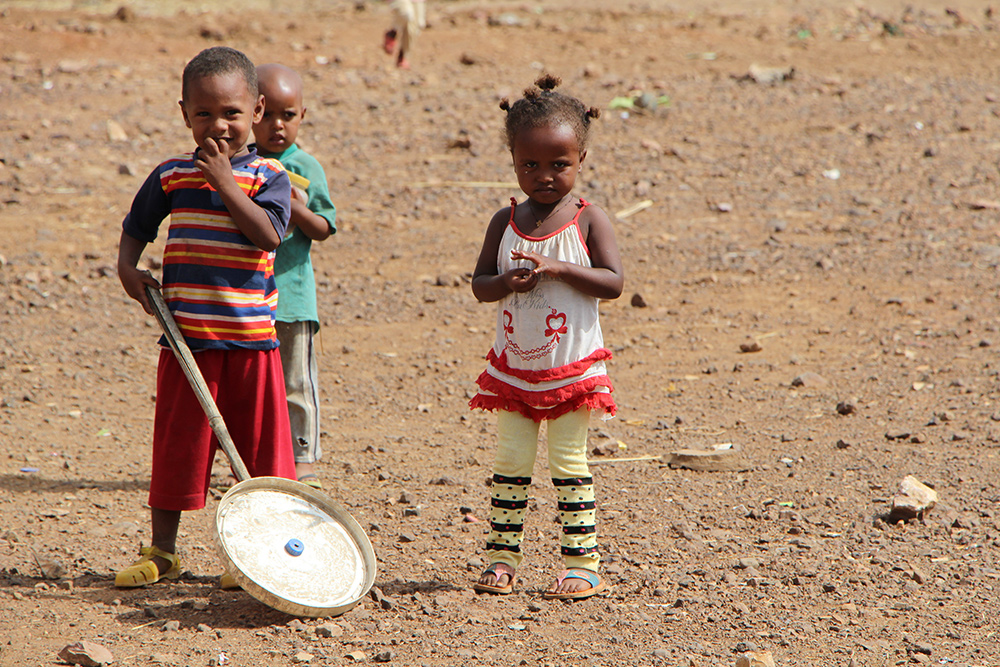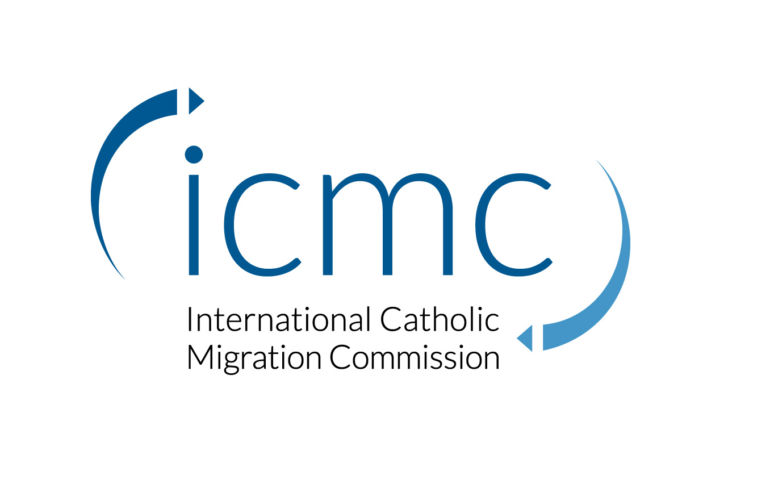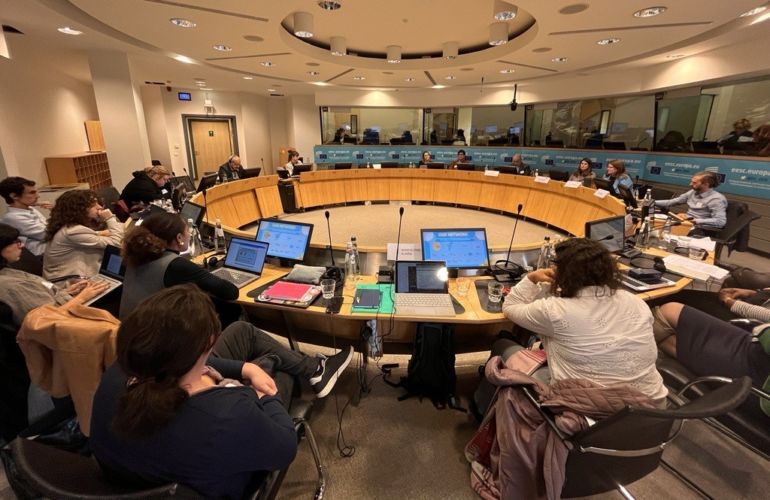Civil Society Calls on EU Member States to Demonstrate Leadership on Resettlement at the 2019 Global Refugee Forum

One year after the adoption of the Global Compact on Refugees, the international community will gather in Geneva at the first Global Refugee Forum on 17-18 December 2019. The European Union and its member states have a leading role to play in realizing the Compact’s goals, and civil society organizations stand ready to assist and support this work during 2020 and beyond.
The Forum is the first moment to take stock of progress on implementing the Global Compact, and for global actors – including the EU and its Member States – to demonstrate leadership on refugee protection and assistance. For resettlement, it is an opportunity for the EU and its Member States to make a collective pledge to increase European resettlement for 2020 and beyond.
The Global Compact identifies resettlement as a global protection tool and durable solution for refugees around the world, yet recent years have seen a sharp decline in the number of global resettlement places. 2016-17 saw a 50% decrease in global resettlement places, followed by a further decline of 15% in 2018, and political developments in the US that suggest global numbers will fall even further.

While resettlement in the EU has increased in recent years, numbers remain insufficient. Resettlement places offered by Member States represent only 1.6% of global resettlement needs, far below the capacity of the EU as a wealthy region, and at odds with the EU’s status as a major international humanitarian actor.
Civil society organizations welcome the recent announcement of Member State pledges of 30,000 resettlement places for 2020. However, a decrease in the number of Member States participating in resettlement, the tendency to prolong implementation periods beyond the original pledging timeframes, and the framing of resettlement as a migration management tool are all causes for concern.
Inaction is not an option. An estimated 1.4 million refugees around the world are in need of resettlement, but just 55,680 resettlement places were made available by the international community in 2018. We therefore urge the EU and its Member States to seize the opportunity presented by the Global Refugee Forum to reassert a collective European commitment to refugee protection through resettlement, and to demonstrate global leadership and solidarity with the developing countries hosting the majority of the world’s refugees.
The UN Refugee Agency’s three-year strategy on resettlement and complementary pathways calls for one million resettlement places and two million refugees to be admitted through complementary pathways by 2028. The EU and its Member States have a leading role to play in realizing this vision, and we as civil society organizations stand ready to assist and support this work during 2020 and beyond.

